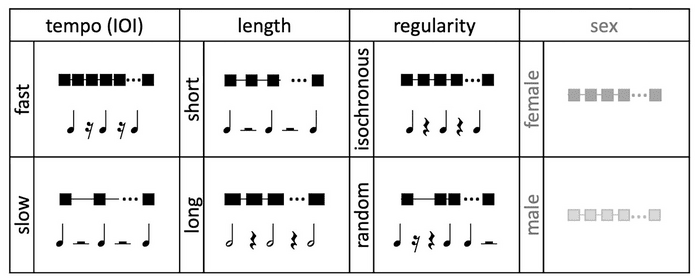Researchers have taken musical notes to the world of pinnipeds, testing whether harbour seals can feel the rhythm in their flippers. While some evidence suggests lemurs have categorical rhythm and other apes and songbirds can be trained to recognize certain rhythms, it is a fair cry from a human ability to discriminate between rhythmic patterns.
We’ve all experienced dad dancing at a family wedding – but humans are one of the only species on Earth with an innate sense of rhythm perception. In fact, the ability known as beat perception and synchronization is a human universal and one of the foundations of human speech.
The researchers chose harbour seals (Phoca vitulina) because of their capacity for vocal learning, thought to be one of the building blocks for rhythmic capabilities. They created three sequences of seal vocalizations with different properties; overall tempo (fast or slow, like beats per minute in music), length (short or long, like duration of musical notes), and sequence regularity (regular or irregular). They did not use human-made music but rather adapted seal pup calls into these sequences.

Graphic representation of the three rhythmic factors used in the experiment and their corresponding approximate western music notation. Each square (rectangle when duration is longer) represents a seal pup call. Image Credit: Verga, L., et al Biology Letters (2022)
They then tested the sequences on 20 young seals all held at a rehabilitation center prior to their release back into the wild. Using a method from studies on rhythmic responses in human children, the team recorded how many times the seals turned to look at the source of the sounds. This behavior indicates if the animals, be they human or seal, find the stimulus interesting. If the seals could tell the difference between the vocalization sequences then it might indicate that they prefer one kind over the other.
The seals looked behind at the source of the noises more often when the vocalizations were longer, faster, or more rhythmically regular. The seals were not rewarded for responding to the noises or trained to respond when presented with a noise. This suggests that the seals could discriminate between regular and irregular sequences, long and short note sequences, and slow and fast-paced tempo sequences.
“Another mammal, apart from us, shows rhythm processing and vocalisation learning”. “This is a significant advance in the debate over the evolutionary origins of human speech and musicality, which are still rather mysterious. Similarly to human babies, the rhythm perception we find in seals arises early in life, is robust and requires neither training nor reinforcement.” Says first author Laura Verga in a statement.
The team suggests that this presents the first record of rhythm discrimination abilities of mammals other than humans. They suggest a further study could look at the function of this ability in an ecological setting or compare harbour seals to other pinnipeds to see if rhythm is a matter of convergent evolution or common ancestry.
The paper is published in Biology Letters.
Source Link: Do Seals Feel The Beat? Faster, Rhythmic Sequences Pique Their Interest